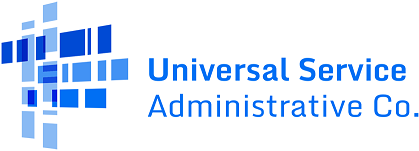Suspensions and Debarments
Persons who are convicted of criminal violations or held civilly liable for certain acts arising from their participation in the Lifeline program are subject to suspension and debarment from the program.
The Federal Communications Commission (FCC) suspension and debarment regulations were extended to the High Cost, Lifeline, and Rural Health Care programs (FCC 07-150 released August 29, 2007).
The two stages of the FCC’s process are outlined below.
Stage One: Suspensions
The FCC becomes aware that a person has been convicted of a crime or judged civilly liable for certain acts arising out of that person’s participation in the program. The FCC suspends that person from all activities related to the program. The FCC issues a Public Notice of Suspension and Initiation of Debarment Proceedings.
USAC maintains a list of suspended persons below, along with a link to the notice on the FCC’s website. The notice of suspension informs the suspended person (or other interested party) that they have 30 calendar days to oppose the suspension or the proposed debarment.
Persons Suspended
| Name | Notice | Date of Notice |
| Oscar Enrique Perez-Zumaeta | DA 15-669 | 6/8/2015 |
| Icon Telecom, Inc. | DA 15-627 | 5/26/2015 |
| Wes Yui Chew | DA 15-630 | 5/26/2015 |
Stage Two: Debarments
The FCC will, absent extraordinary circumstances, provide notice of a decision to debar within 90 calendar days of receiving any information from the person proposed for debarment. The decision to debar will become effective upon receipt of the debarment notice or publication of the decision in the Federal Register, whichever occurs first. USAC maintains a list of debarred persons from the Lifeline program below, along with a link to the debarment notice on the FCC’s website.
Persons Debarred
| Name | Notice | Date of Notice | Term |
| Icon Telecom, Inc. | DA 15-1160 | 10/13/2015 | 3 Years |
| Oscar Enrique Perez-Zumaeta | DA 15-1130 | 10/5/2015 | 3 Years |
| Wes Yui Chew | DA 15-1075 | 9/25/2015 | 3 Years |
